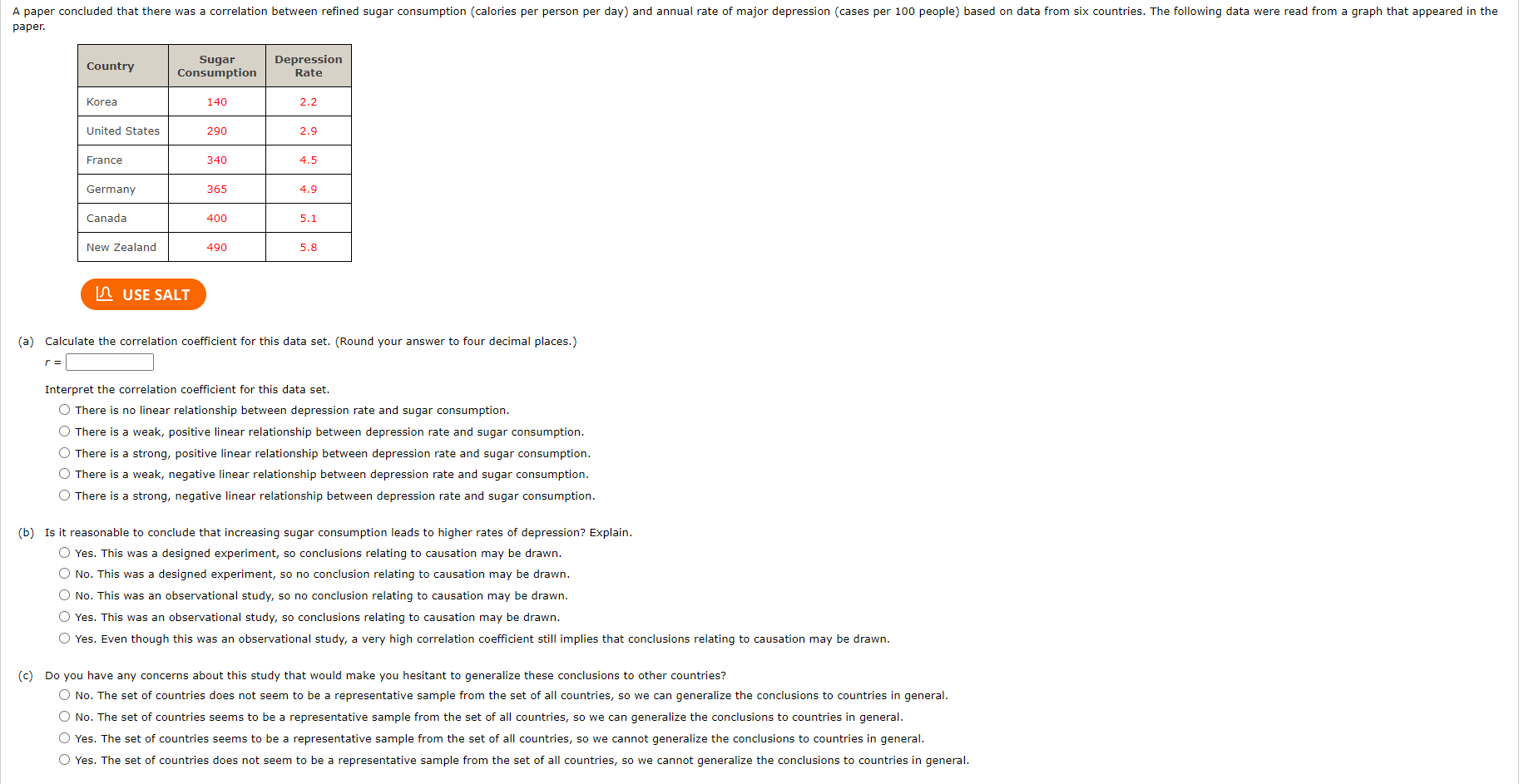i will appreciate
A paper concluded that there was a correlation between rened sugar consumption (calories per person per day) and annual rate or major depression (cases per mm people) based on data from six countries The following data were read frnm a graph that appeared in the papec Wm Mimi\". \"to???\" Korea 140 2.2 United states 290 2.9 France 34o 4.5 Germany 355 4.9 Canada 400 5.1 New zealand 490 5.8 USES (3) Calculate the correlation coeiiicient for this data set [Round youranswer to tour decimal places) r= \\:| Interpret [he carrelallun inefcient far [hi5 data Eel C) There is no linear relationship petween depression rate and sugar consumption 0 There is a weak, positive linear relationship between depression rate and sugar consumption. 0 There is a strong, positive linear relationship between depression rate and sugar consumption. 0 There is a weak, negative linear relationship between depression rate and sugar consumption. 0 There is a strong, negative linear relationship petween depression rate and sugar consumption. ii) 15 it reasonable to conclude that increasing sugar consumption leads to higher rates of depression? Explain. 0 Yes This was a designed experiment, so conclusions relating to causation may he drawn. 0 No. This was a designed experiment, so no conclusion relating to causation may be drawn. 0 No. This was an ohsenrational study. so no conclusion relating to causa on may be drawn. 0 Yes This was an observational study. so conclusions relating to causation may he drawrli 0 Yes Even though this was an ooservational study. a very high correlation coeFcient still implies that conclusions relating to causation may he diawn. (c) no you have any concerns about this study that would make you hesitant to generalize these conclusions to other countries? 0 No. The set of countries does not seem to he a representative sample from the set orall countries, so we can generalize the conclusions to countries in general. 0 No. The set of countries seems to tie a representative sarnple from the set of all countries, so we ran generalize the conclusions to countries in geneial. 0 Yes The set of countries seems to be a representative sample from the set or all countries, so we cannot geneialize the conclusions to countries in general. 0 Yes The set of countries does not seem to be a representative sample from the set otall countries, so we cannot generalize the conclusions to countries in generali







